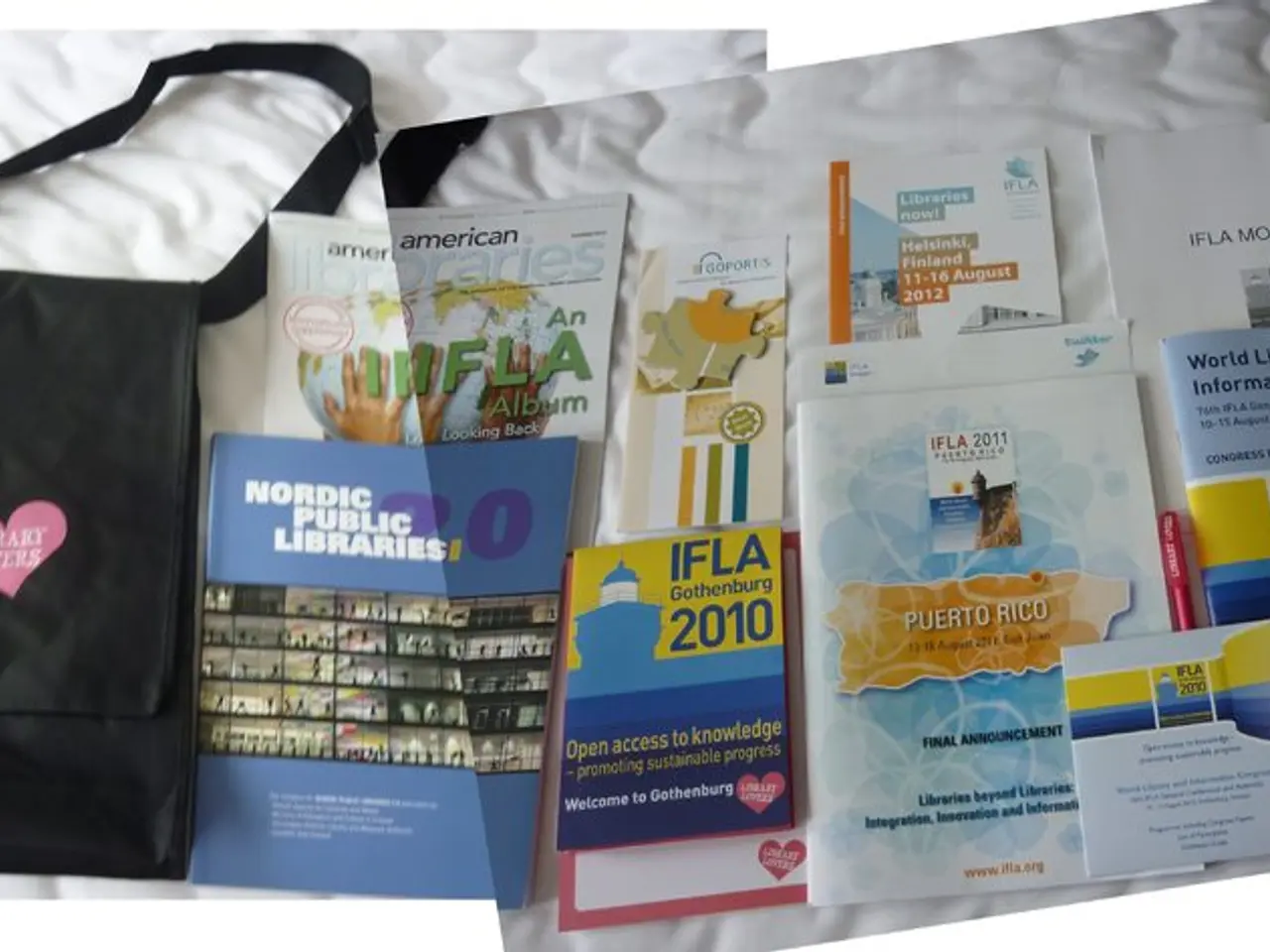Reading Series in Brandenburg: Insights from Cornelia Jentzsch on her Pub Event
In the heart of the Uckermark region, nestled within the picturesque village of Warnitz, lies the Gasthof Deutsche Eiche - an old inn with a rich history and a unique charm. Over the past decade, this humble establishment has become home to one of Berlin-Brandenburg's most intriguing literary event series, the Warnitzer Lesungen.
Initiated by literary critic Cornelia Jentzsch, the Warnitzer Lesungen began as a platform for Brandenburg's most celebrated authors to share their work with the local community. The initial events focused solely on readings, without the opportunity for discussions or interaction. However, as the series progressed, it evolved to include more engaging activities, reflecting the growing interest and participation of the audience.
Jentzsch, who splits her time between Berlin and Warnitz, believes that poetry offers a unique and critical perspective on society, engaging with language in a way that provides a precise vision of our world. This belief is evident in the diverse range of authors that the Warnitzer Lesungen has showcased over the years, including poets, novelists, nonfiction authors, translators, editors, and publishers.
The series has attracted well-known authors due to the amazing audience and the support from the district, village, and mayor. The Deutsche Eiche, run by locals, serves as the perfect setting for these literary gatherings, with its old knight's armour and stuffed animals adorning the walls. The inn also provides a warm and welcoming atmosphere, serving Bouletten, homebrewed beer, schnitzel with an egg and potatoes, and offering visitors the chance to dine and socialise after the events.
One of the most memorable moments in the Warnitzer Lesungen's history was when Jentzsch invited Maximilian Steinbeis to read from his book Die verwundbare Demokratie at the Warnitzer Lesungen, showcasing the great demand for such discussions. The event attracted a large crowd, demonstrating the growing interest in political discourse within the community.
The Warnitzer Lesungen takes place monthly, with the intention of providing a continuous offering of good literature to people in the rural area. The series has also branched out to include summer concerts, with both Berliners and locals working together to organise these events. Georg Kallweit, a violinist from the Akademie für Alte Musik, had the idea of holding summer concerts in Melzow's church with brilliant international musicians, which has since been fully renovated thanks to donations from guests.
However, the presence of the far-right in the rural areas of Uckermark poses challenges. Jentzsch has noticed this significant presence and the associated difficulties it brings. Despite this, she finds peace and quiet in Warnitz, which helps her get her work done efficiently. She has also experienced acts of kindness from her neighbours, such as a neighbour bringing soup when Jentzsch was ill.
Jentzsch has learned over the years that a good moderator should ask questions out of curiosity, rather than trying to appear knowledgeable. This approach has fostered mutual respect and open dialogue between the authors and the audience. When Berliners integrate themselves into local life and show curiosity and talk to people, this mutual respect can grow.
The UNESCO Club Joachimsthal is an important cooperation partner for the Warnitzer Lesungen, supporting the series and contributing to its continued success. The event series has become an institution in the Uckermark, attracting a dedicated and enthusiastic audience. The Landkreis, the Brandenburg Literature Council, and the Potsdam Literature Office continuously support the Warnitzer Lesungen's honorariums.
Despite the challenges posed by the far-right presence, the Warnitzer Lesungen continues to thrive, providing a platform for quality literature and engaging discussions in a rural setting. The series' evolution over the past decade serves as a testament to the power of literature and community engagement, bringing people together in a shared love of words and ideas.
[1] It is important to note that the article does not provide detailed year-by-year changes or specific milestones over the decade, as these were not documented in the available source.
- The Warnitzer Lesungen, an engaging literary event series in Warnitz, has diversified its activities over the years, stepping beyond just readings to include discussions and social events, reflecting the audience's growing interest.
- The series, which takes place in the rustic environs of Gasthof Deutsche Eiche, has expanded its offerings to include summer concerts, a collaboration between locals and Berliners, showcasing international musicians in Melzow's entirely renovated church.
- Through the Warnitzer Lesungen, literary critic Cornelia Jentzsch aims to provide a perspective on society using poetry, inviting a diverse range of authors such as poets, novelists, nonfiction authors, translators, editors, and publishers.
- The series is supported by the district, village, and mayor, attracting well-known authors such as Maximilian Steinbeis, and offers a warm and welcoming atmosphere for people to dine and socialise after events, serving traditional German dishes like Bouletten and schnitzel.
- The Warnitzer Lesungen, now an institution in the Uckermark, is such a success that it has attracted the support of the UNESCO Club Joachimsthal and continuous financial support from the Landkreis, the Brandenburg Literature Council, and the Potsdam Literature Office.
- Despite the challenges posed by the far-right presence in the Uckermark, the Warnitzer Lesungen, with its emphasis on community engagement, continues to foster mutual respect and open dialogue, serving as a testament to the power of literature and ideas in bridging gaps and bringing people together.




